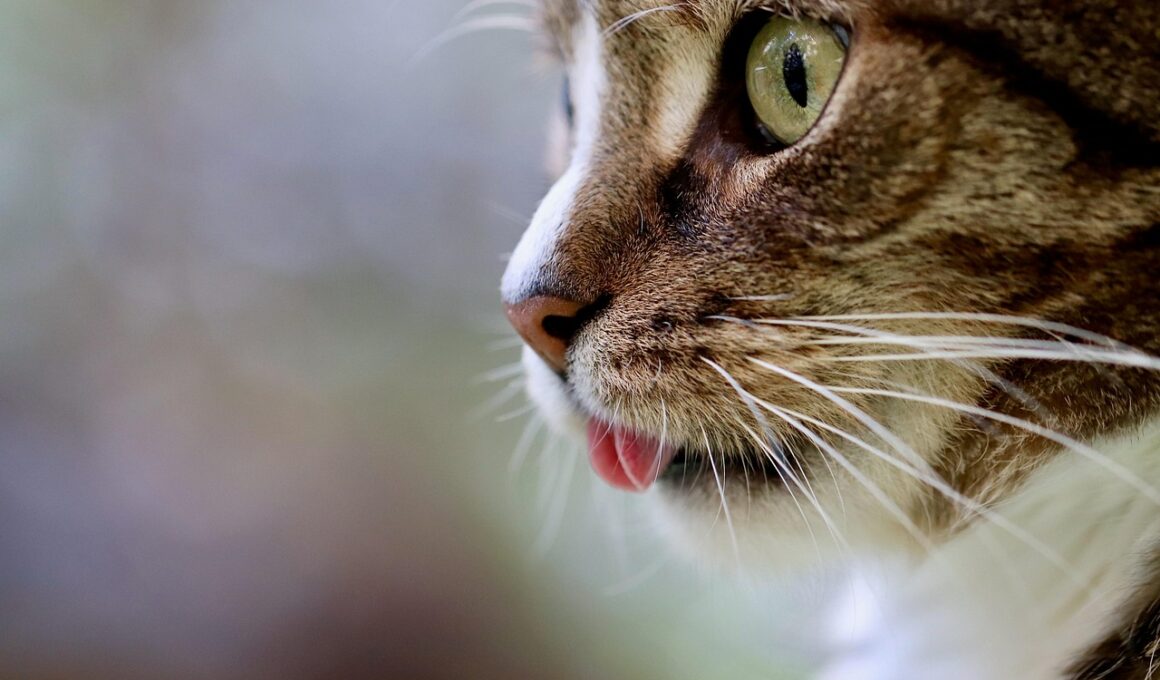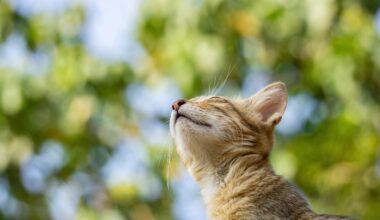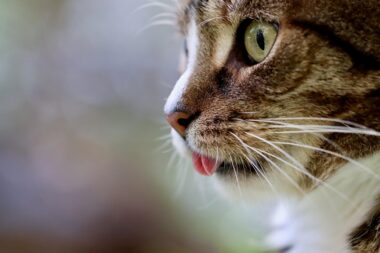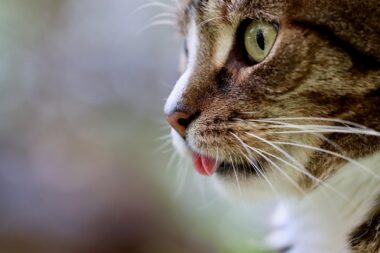The Link Between Vitamins and Your Cat’s Mental Health
Providing essential vitamins for your cat plays an instrumental role in maintaining mental health. Cats, like humans, experience emotional and psychological challenges, often linked to their diet. Among the critical vitamins, Vitamin B complex is especially important, supporting cognitive function and reducing anxiety. The presence of Vitamin E works to protect brain cells from oxidative stress, which may contribute to various mental health conditions in your cat. Furthermore, Omega-3 fatty acids, often found in fish oil, can enhance mood and cognitive abilities while ensuring overall brain health. Vitamin D also contributes significantly, impacting serotonin levels which govern mood and anxiety. Additionally, vitamins A and C help bolster the immune system, indirectly supporting mental well-being. Providing a balanced diet enriched with these vitamins can lead to happier, more engaged felines. Regular veterinary check-ups can help identify deficiencies and ensure proper supplementation, which can significantly affect their behavioral and mental health. Consider incorporating natural sources of these vitamins through high-quality cat food or supplements recommended by veterinary professionals to support your cat’s overall wellness.
Understanding the link between vitamins and cat health goes beyond physical appearance. Cats are susceptible to mood swings, lethargy, and anxiety—issues significantly addressed by adequate vitamin intake. Cats require a variety of vitamins, and their deficiencies can lead to neurobehavioral issues. For instance, a deficiency can manifest in aggressive behaviors or withdrawal from social interactions. Mood disorders in cats are often overlooked but can be markedly improved by correcting nutritional deficiencies. Consulting with veterinarians about omega fatty acids and B vitamins can lead to crucial dietary adjustments that enhance psychological health. One must also ensure that the food they provide meets the specific nutritional needs of their breed and age. Young cats may have different requirements compared to senior cats, making tailored diets essential. Bonding during feeding time can also improve emotional connections, ultimately influencing mental stability. Pet owners should actively engage in their cat’s diet, ensuring it contains sufficient amounts of vitamins, primarily from natural sources. This proactive approach leads to enriched lives for both cats and their owners, as happiness will emerge when mental health improves significantly.
A common misconception is that cats solely need protein for their wellbeing, ignoring the need for vitamins. Carbohydrates can be a suitable energy source, but vitamins are critical for sustaining optimal mental performance. Many cat owners might overlook the significant role vitamins play in their pets’ behavior and mood. Natural food sources rich in vitamins are vital, while over-reliance on commercial cat foods may lead to imbalanced nutrition. Key vitamins such as B12 help in the synthesis of neurotransmitters that manage cats’ moods, thus preventing issues like fear and anxiety. Additionally, incorporating antioxidant-rich foods can combat stress, enhancing overall mental performance. Cat treats infused with vitamins can serve as effective tools for supplementation and positive reinforcement during training or bonding moments. Choose high-quality treats that are free from harmful additives, focusing on those that support mental health. Ensuring that your cat receives the right balance of vitamins and minerals not only promotes mental health but also contributes to longevity. Hence, responsible pet ownership involves maintaining not just physical but mental and emotional health through proper dietary choices. Each aspect contributes to a fulfilling life that every cat deserves.
The Role of Vitamins in Behaviors
Cats exhibit specific behaviors influenced greatly by vitamin intake, highlighting their critical role in emotional stability. For instance, low Vitamin B levels can make cats irritable and more prone to aggressive behavior. Allowing sufficient opportunity for outdoor exploration can help absorb natural Vitamin D, thus contributing to balanced moods. It’s essential to monitor changes in your cat’s behavior closely, as these often signal nutritional deficiencies requiring immediate attention. In addition, providing enriched environments and sensory stimulation is vital for their mental wellness. When combined with adequate vitamin supply, engaging your cat creatively leads to an empowered spirit. Regular interactive playtime fosters emotional bonds while also enhancing mental stimulation. Additionally, supplementing their diet with vitamins can effectively alleviate stress-induced problems, such as excessive grooming or hiding. Products containing essential vitamins can be found in pet stores or recommended by veterinarians, meeting specific health needs. Incorporating such vitamins into their diet can help manage anxiety and promote calmness. Owners should track behavioral changes resulting from dietary adjustments, ultimately improving quality of life for their beloved companions.
Emphasizing dietary variety is crucial for mental health. Regularly altering your cat’s diet by introducing different flavors or textures can also provide mental stimulation. Cats can get bored with repeated meals, which can affect their mood negatively. An enriched diet introducing new vitamins and flavors not only excites their taste buds but enhances their mental engagement. Consider creating a balanced diet plan with guidance from a local pet nutritionist, ensuring that your cat receives adequate vitamins suited for its life stage. Understanding the specific nutritional needs of your individual cat can mitigate potential health issues, both physical and mental. Adding new foods gradually is essential to prevent digestion issues, integrating these changes smoothly. Experiment with premium wet foods, boosting hydration while providing essential nutrients. As always, monitor your pet’s reaction to such changes, adjusting accordingly. Paying attention to their preferences can foster a stronger bond between you and your feline friend, impacting their happiness positively. Additionally, regular vet check-ups can help confirm dietary adequacy, spotlighting any abnormalities linked to behavior. Ultimately, a well-rounded nutritional approach will foster both the mental and physical vitality of your feline companion.
Another important aspect influencing a cat’s mental health is hydration, which works hand-in-hand with vitamin intake. Dehydrated cats may show signs of lethargy and anxiety, reinforcing the need for a comprehensive dietary approach. Fresh water availability is crucial, and incorporating wet food can enhance hydration significantly. Many essential vitamins work optimally when combined with adequate water intake, helping facilitate biological processes that promote well-being. An underlying hydration issue can hinder the absorption of vitamins, negating their benefits on mental health. This emphasizes the need for owners to ensure their pets drink enough water daily, especially when providing a primarily dry diet. Moreover, observing your cat’s drinking habits can help identify issues early on, allowing you to take action promptly. Adding flavor to water can encourage increased consumption. Additionally, keeping water bowls clean ensures better health and encourages drinking. Combine hydration strategies with vitamin-rich meals to ensure your cat experiences optimal vitamin efficiency. Remember to consult your veterinarian about the best hydration strategies suited to your cat’s individual needs. Ultimately, the link between hydration, vitamins, and mental health creates a synergistic effect that fosters overall well-being.
Final Thoughts
Understanding the multifaceted role vitamins play in your cat’s mental health can transform their quality of life. An investment in proper nutrition ensures your cat thrives both emotionally and physically. Owners must prioritize dietary assessments that incorporate essential vitamins for optimal mental function. Take proactive measures by ensuring your cat’s diet consists of high-quality foods rich in essential nutrients. Establishing a routine that includes regular vet visits ensures you track your cat’s health, learning any deficiencies that may arise. Furthermore, continuous education on feline nutrition will empower pet owners to make informed decisions concerning their cat’s dietary needs. From understanding the importance of proteins to recognizing the significant role of vitamins, knowledgeable owners can offer well-rounded care. Happy and healthy cats yield better emotional wellness, reflected in their behaviors and attitudes. Engaging with your cat during meal preparation and feeding fosters strong bonds, enhancing their mental health. With diligence, these opportunities lead to fulfilling lives for our feline companions, ensuring they live optimally. Nutrition and mental health are interlinked, leading to a healthier, happier furball for years to come.
This article aims to educate readers on the essential vitamins that contribute significantly to a cat’s mental health. Owners should realize that improving comprehension about nutrition is fundamental for enhancing life quality for their pets. This systematic approach toward acknowledging their dietary needs must incorporate vitamins crucial for mental stability. By understanding how vitamins like B complex, omega-3s, and antioxidants influence behavior, owners can tailor their cat’s diets effectively to promote emotional health. This shift can lead to proactive measures taken by pet owners in managing their felines’ nutritional needs. With every measured step taken toward optimized health, significant improvements in behavior can manifest. Quality vitamins not only enhance brain function but also contribute to reducing anxiety levels in cats, enabling them to thrive emotionally. Thus, as responsible pet owners, the focus must be on providing balanced meals synthesized with these necessary vitamins to support mental well-being effectively. Regular assessments and being attentive to behavioral signs are useful tools for tracking cat health. When emphasis shifts toward nutrition, lasting impacts on behavioral patterns and emotional health can be observed within your beloved furry companions.





